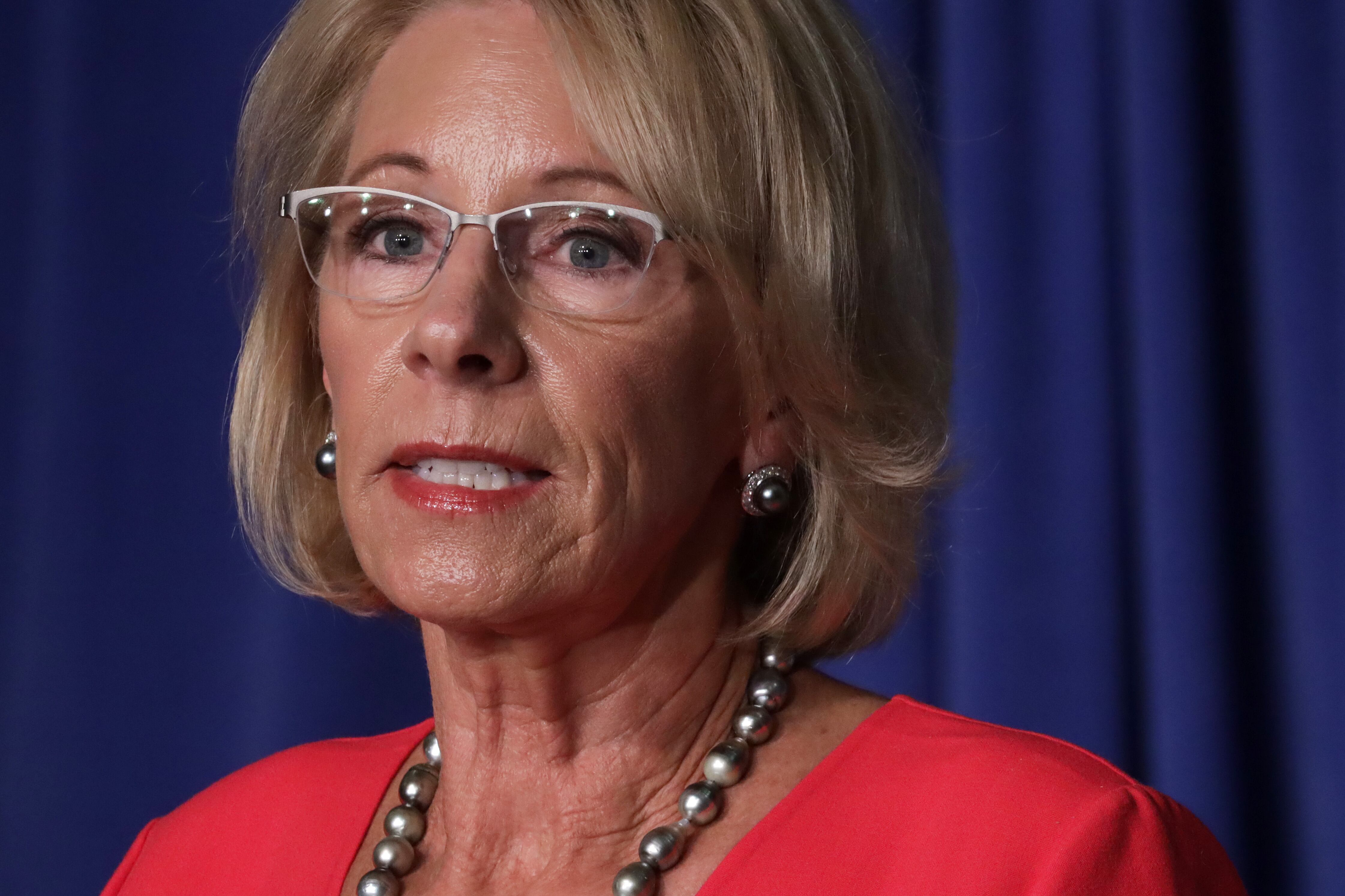A second federal judge in a matter of days has ordered Education Secretary Betsy DeVos to stop enforcing a rule that would direct more coronavirus relief aid to private schools. Both judges said DeVos’ approach flouted the clear language in the CARES Act, the coronavirus relief package passed in March.
“An executive agency like the Department has no authority to rewrite Congress’s plain and unambiguous commands under the guise of interpretation,” wrote James Donato, a judge for the Northern District of California.
The plaintiffs in this case are several states, including California and Michigan, and school districts, including New York City and Chicago. Donato’s preliminary injunction stops DeVos and her department from enforcing the rule in any of those states or districts. Another judge, in a case involving Washington state, issued a similar order last week, though the parties in the case disagree on whether the order applies in just Washington or the country as a whole. Oral arguments in a third case against DeVos, involving multiple states and districts, are set for next week.
At issue in the cases is how much aid private schools will receive through the CARES Act. DeVos has pushed districts to allocate money based on the share of all nearby students who attend private schools. But many public school advocates contend that the law requires allocating money based just on the share of nearby low-income students in private schools. Because fewer students from poor families attend private school in most areas, this dispute leaves substantial sums of money hanging in the balance.
Critics, and a number of legal scholars previously consulted by Chalkbeat, say the law is clear that the money was intended to be distributed based on low-income students.
Donato, who was appointed by President Obama, agreed. “The Department relies entirely on ‘context,’” as opposed to the words Congress used, he wrote.
“This is ‘interpretive jiggery-pokery’ in the extreme,” Donato continues, quoting deceased conservative Supreme Court Justice Antonin Scalia.
Donato also agreed with plaintiffs that the rule’s enforcement must be halted immediately, even before he has made a final ruling, because it could result in “irreparable harm” to school districts. “Wisconsin schools had to choose between diverting over $4 million of CARES Act funding to private schools or abandoning district-wide coronavirus preparation such as sanitizing school buses,” he wrote.
“To be sure, there is a public interest in sharing CARES Act funds with private schools, as the Department suggests,” Donato wrote. “But allowing the Department to rewrite the statutory formula for sharing education funds is manifestly not in the public interest.”
Donato’s reasoning is very similar to Barbara Rothstein’s, the federal judge in the Washington case. While both orders amounted to preliminary rulings, they do not bode well for the U.S. Department of Education’s rule, which legal scholars had said was already on shaky ground.
Critics have contended that DeVos is using the pandemic to direct money away from public school and toward private schools.
DeVos herself has acknowledged wanting to use the pandemic to support access to private schools. She has also argued that private schools face a unique threat of closure and that the pandemic has affected all students, regardless of the type of school they attend.
“While the Department does not comment on pending litigation, the Secretary has said many times, this pandemic affected all students, and the CARES Act requires that funding should be used to help all students,” Angela Morabito, a department spokesperson, said in a statement.







